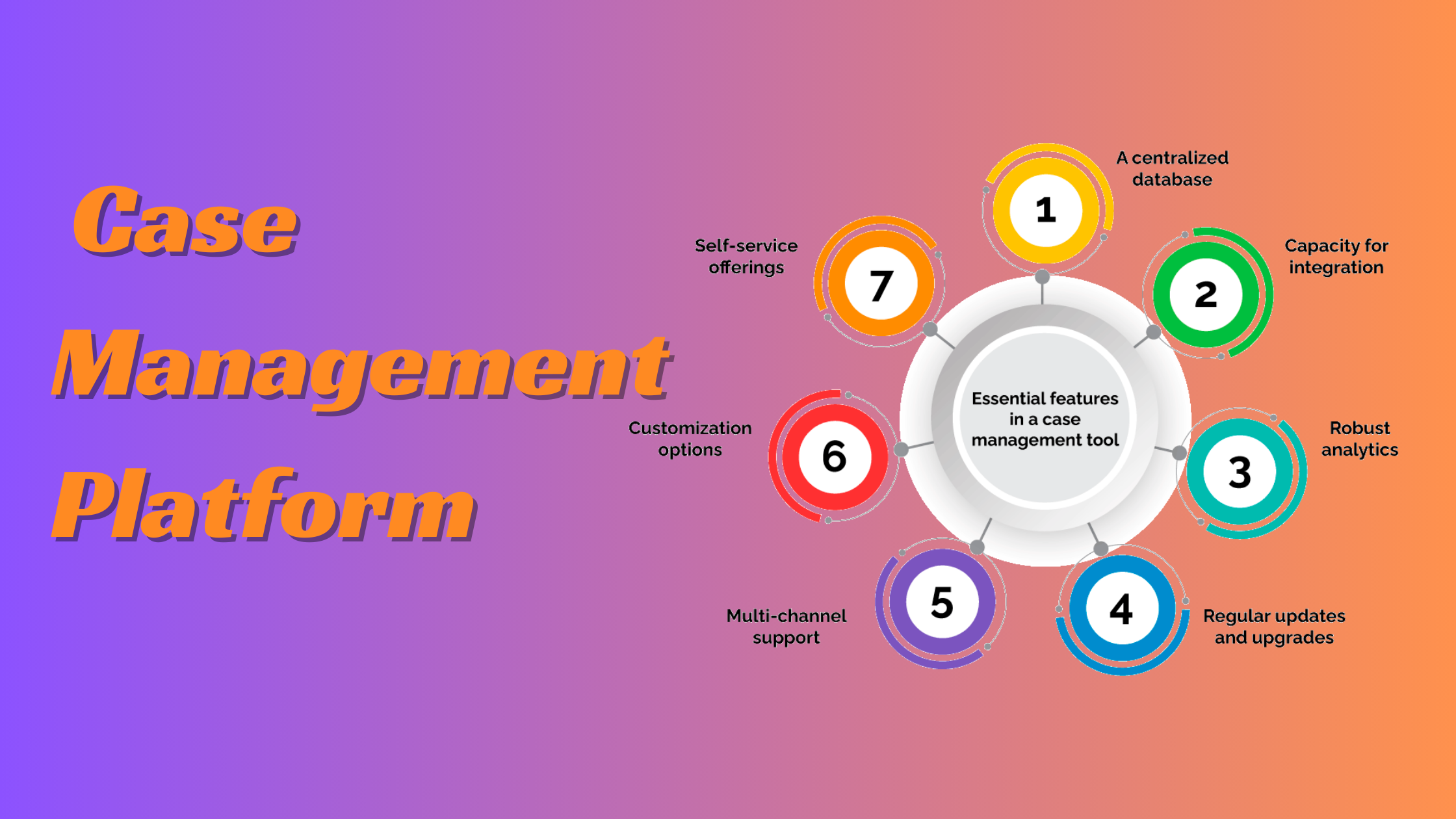What To Look For In A Secure Case Management Platform
- 1 Benefits of Having a Secure Case Management Platform
- 1.1 1. Comprehensive Data Encryption
- 1.2 2. User Access Controls
- 1.3 3. Regular Security Audits and Compliance
- 1.4 4. Data Backup and Recovery
- 1.5 5. Real-Time Monitoring and Alerts
- 1.6 6. User Training and Support
- 2 Conclusion
- 2.1 FAQs:
- 2.1.1 Q: What is data encryption, and why is it important?
- 2.1.2 Q: How does user access control enhance security?
- 2.1.3 Q: Why is compliance with regulations like HIPAA or GDPR necessary for case management platforms?
- 2.1.4 Q: Why are regular security audits essential for case management platforms?
- 2.1.5 Q: What is the significance of data backup and recovery for organizations?
- 2.1.6 Q: How does real-time monitoring contribute to data security?
- 2.1.7 Q: Why is user training essential for maintaining data security?
In Short:
- Comprehensive Encryption: Prioritize platforms with advanced encryption (256-bit or higher) for data at rest and in transit to ensure robust protection of sensitive information.
- Granular Access Controls: To minimize internal threats and unauthorized access, choose a platform that offers precise user access controls based on roles and responsibilities.
- Continuous Compliance and Monitoring: Opt for platforms that undergo regular security audits, comply with relevant regulations, and offer real-time monitoring to swiftly identify and respond to potential breaches.
Organizations handling sensitive client data need a secure case management platform to protect confidentiality and build trust. Given growing cyber threats, identifying a genuinely secure platform can be challenging.
This article explores critical features to prioritize when selecting a case management platform with robust data security. We will examine vital considerations such as encryption, access controls, compliance, backups, monitoring, and user training.
By focusing on these essential elements, organizations can ensure the platform they choose has multilayered protections to safely manage sensitive information, uphold privacy, enable regulatory compliance, and avoid costly breaches.
Benefits of Having a Secure Case Management Platform
1. Comprehensive Data Encryption
Prioritize platforms that utilize 256-bit or more robust encryption for data at rest and in transit. Encryption should rely on advanced algorithms like AES rather than basic protocols. Seek solutions that encrypt all sensitive data rather than just passwords. Proper encryption minimizes reliance on passwords alone to protect confidentiality. Extended validation encryption is necessary for medical, financial, or legal data.
2. User Access Controls
Access control is a fundamental aspect of data security. Look for a platform that offers granular user permissions, allowing administrators to define and restrict access based on roles and responsibilities. This ensures that users only access the data necessary for their work, minimizing the risk of internal threats. The Casebook platform lets administrators control user access precisely based on roles and responsibilities.
3. Regular Security Audits and Compliance
Seek platforms compliant with relevant regulations like HIPAA, PCI DSS, or GDPR, which require stringent security controls. Regular third-party audits and achieving additional certifications like SOC2 validate that appropriate physical, technical, and administrative safeguards are in place and evolving. Staying continuously compliant builds trust.
4. Data Backup and Recovery
The ability to recover data after a loss event is critical. Ensure the platform has a robust backup and recovery system, with regular, encrypted backups stored in secure locations. This ensures that data can be restored quickly and efficiently, minimizing downtime and loss.
5. Real-Time Monitoring and Alerts
Ongoing monitoring enables early threat identification and swift response. Review logging capabilities and real-time alerting for anomalous activities indicating potential breaches. Prioritize platforms with 24/7 monitoring, automated anomaly detection, and prompt investigation of possible threats.
6. User Training and Support
Human error is a common cause of data breaches. A secure platform should offer comprehensive training and support for users to understand the system’s security features and best practices for data protection. Educated users are an organization’s first line of defence against security threats.
Conclusion
identifying the right case management platform requires scrutinizing security capabilities like encryption, access controls, compliance, backup systems, monitoring, and user training. A platform lacking in any of these safeguards leaves organizations vulnerable.
By thoroughly evaluating options and prioritizing multilayered security protections, organizations can confidently select a platform that can productively and safely manage sensitive data. The right solution becomes a robust foundation upon which trust in clients, regulators, and the public can flourish.
With rigorous security intrinsic to the platform, organizations are empowered to focus on service delivery with peace of mind. Investing in a secure case management platform pays dividends through strengthened privacy, compliance, and public assurance.
FAQs:
Q: What is data encryption, and why is it important?
A: Data encryption is the process of converting data into a code to prevent unauthorized access. It’s crucial for protecting sensitive information from cyber threats during storage and transmission.
Q: How does user access control enhance security?
A: User access control restricts data access based on roles, ensuring users only access necessary information. This minimizes the risk of insider threats and unauthorized access to sensitive data.
Q: Why is compliance with regulations like HIPAA or GDPR necessary for case management platforms?
A: Compliance with regulations ensures that platforms adhere to specific security standards and safeguards, safeguarding sensitive data and avoiding legal penalties.
Q: Why are regular security audits essential for case management platforms?
A: Regular security audits validate the effectiveness of security measures and ensure compliance with industry standards, helping to identify and address vulnerabilities proactively.
Q: What is the significance of data backup and recovery for organizations?
A: Data backup and recovery systems ensure that in case of data loss or breach, organizations can restore critical information quickly, minimizing downtime and potential loss.
Q: How does real-time monitoring contribute to data security?
A: Real-time monitoring enables the detection of suspicious activities or potential breaches as they occur, allowing for immediate response and mitigation measures.
Q: Why is user training essential for maintaining data security?
A: User training educates employees on security best practices, reducing the likelihood of human error and ensuring they understand how to effectively use security features within the platform.
















